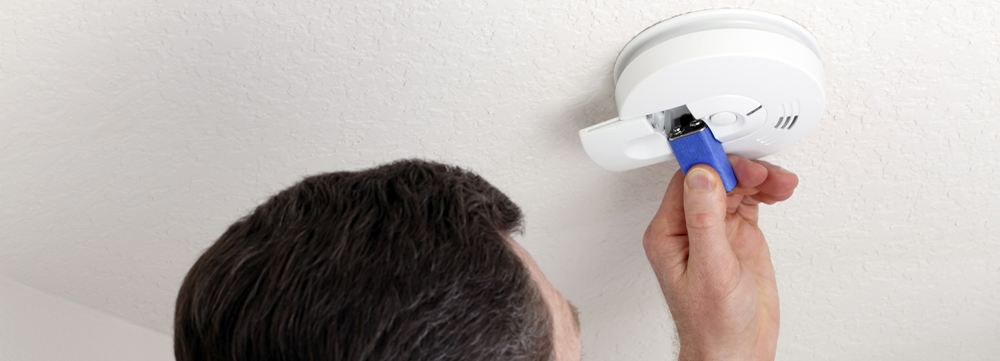
How To Stop Your Smoke Detector's False Alarms
28 October 2016
No smoke, no fire, but a heck of a lot of noise? The modern smoke alarm might as well be a siren that alerts your neighbours every time you’re making toast. Yes, they can be a nuisance, but nevertheless, they’re crucial pieces of technology that keep you and your home safe. Instead of deactivating your smoke alarm, understand what sets them off, and how you can avoid false alarms.
Why Smoke Detectors Go Off
Smoke alarms can go off when there’s a brief power interruption, which is common in areas where energy companies switch grids early in the morning or late at night.
• A loose electrical connection can intermittently disconnect the power supply to your smoke alarm, which, when power is restored, makes your alarm chirp in the same effect as when there’s a power failure.
• The battery may be weak, loose, or poorly installed in the smoke alarm.
• Dust, dirt, or insects may be covering or clogging the sensor chamber. This is especially true if you are renovating. Be careful to protect your smoke alarms from building dust!
• Humidity coming from a bathroom can trigger your smoke alarm.
• Smoke alarms located near an air-conditioning cold air return are more likely to go off because dusty air can be blown through the sensor chamber.
• Other appliances that share the smoke detector’s circuit may cause nuisance alarms, especially for appliances that have a large current load, such as a vacuum cleaner. This can result in voltage spikes to the alarm connection, and cause the alarm to sound.
How To Prevent False Alarms
Relocate your smoke alarm. Place it far enough away from triggering appliances and rooms – at least seven metres away from an oven or furnace, and four metres feet away from humidity areas such as bathrooms or laundry rooms. Keep smoke detectors at least one metre away from heaters too.
• Make sure the battery is fresh and is “snapped” into place properly, without any loose parts. Replace the battery every six months just to be safe.
• Clean your smoke alarm regularly, and make a habit of doing so every time you change the battery. This will eliminate the accumulation of dust and insects trapped in crevices, potentially causing the sensor to malfunction. To clean a smoke detector, use a brush attachment of a vacuum cleaner and clean all around the gap areas, or use an aerosol electronics duster. After cleaning, try spraying the surrounding area — but not the smoke alarm itself — with a household insect spray to create a safe perimeter.
• Make sure your smoke detector is still the best technology for your installation. Switch to a photoelectric smoke , which are less prone to cooking nuisance alarms and more sensitive to the slow burning fires that occur most often in domestic homes.
Remember, smoke alarms are supposed to go unnoticed until they are needed. Follow the simple steps outlined above, and hopefully you’ll make peace with your smoke detector.

